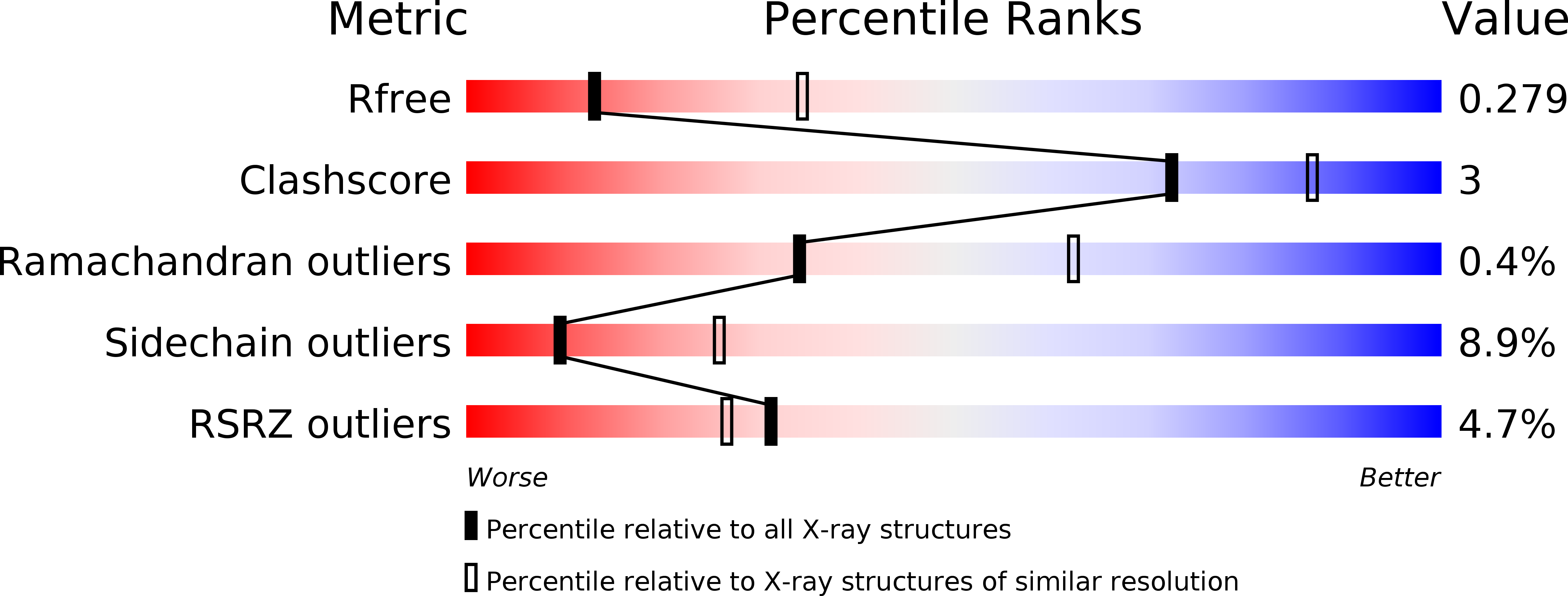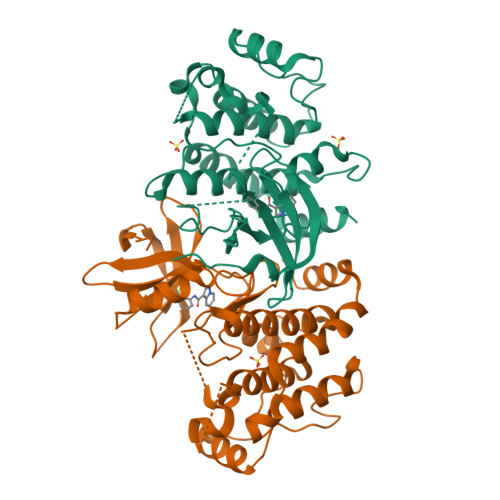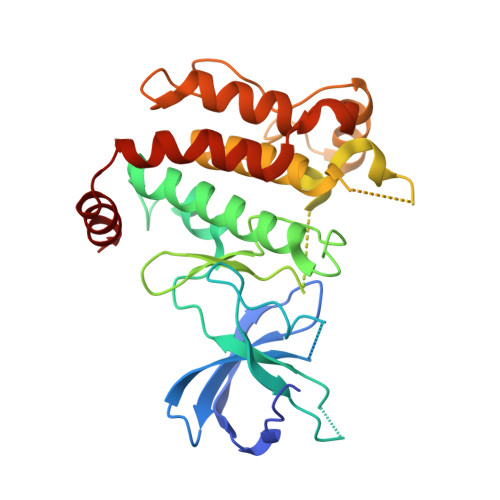Identification of Potent and Selective RIPK2 Inhibitors for the Treatment of Inflammatory Diseases.
He, X., Da Ros, S., Nelson, J., Zhu, X., Jiang, T., Okram, B., Jiang, S., Michellys, P.Y., Iskandar, M., Espinola, S., Jia, Y., Bursulaya, B., Kreusch, A., Gao, M.Y., Spraggon, G., Baaten, J., Clemmer, L., Meeusen, S., Huang, D., Hill, R., Nguyen-Tran, V., Fathman, J., Liu, B., Tuntland, T., Gordon, P., Hollenbeck, T., Ng, K., Shi, J., Bordone, L., Liu, H.(2017) ACS Med Chem Lett 8: 1048-1053
- PubMed: 29057049
- DOI: https://doi.org/10.1021/acsmedchemlett.7b00258
- Primary Citation of Related Structures:
5W5J, 5W5O - PubMed Abstract:
NOD2 (nucleotide-binding oligomerization domain-containing protein 2) is an internal pattern recognition receptor that recognizes bacterial peptidoglycan and stimulates host immune responses. Dysfunction of NOD2 pathway has been associated with a number of autoinflammatory disorders. To date, direct inhibitors of NOD2 have not been described due to technical challenges of targeting the oligomeric protein complex. Receptor interacting protein kinase 2 (RIPK2) is an intracellular serine/threonine/tyrosine kinase, a key signaling partner, and an obligate kinase for NOD2. As such, RIPK2 represents an attractive target to probe the pathological roles of NOD2 pathway. To search for selective RIPK2 inhibitors, we employed virtual library screening (VLS) and structure based design that eventually led to a potent and selective RIPK2 inhibitor 8 with excellent oral bioavailability, which was used to evaluate the effects of inhibition of RIPK2 in various in vitro assays and ex vivo and in vivo pharmacodynamic models.
Organizational Affiliation:
Genomics Institute of the Novartis Research Foundation, 10675 John Jay Hopkins Drive, San Diego, California 92121, United States.




















